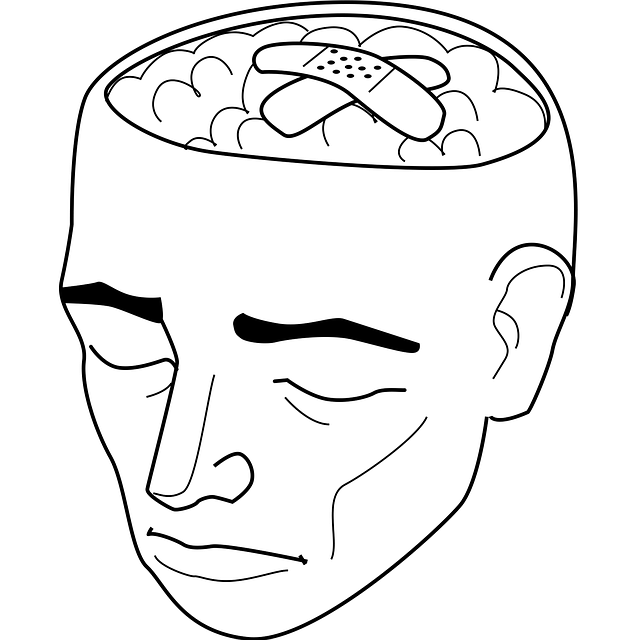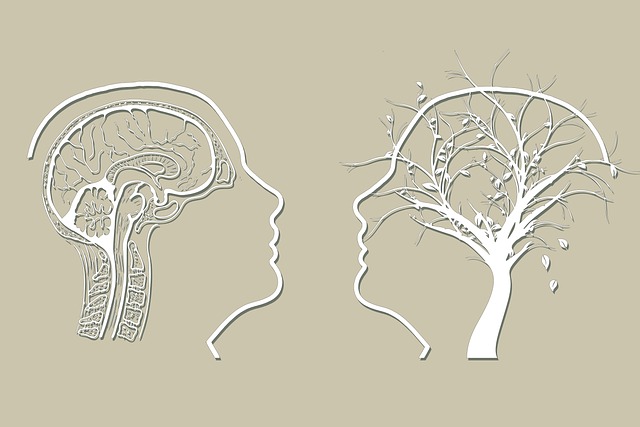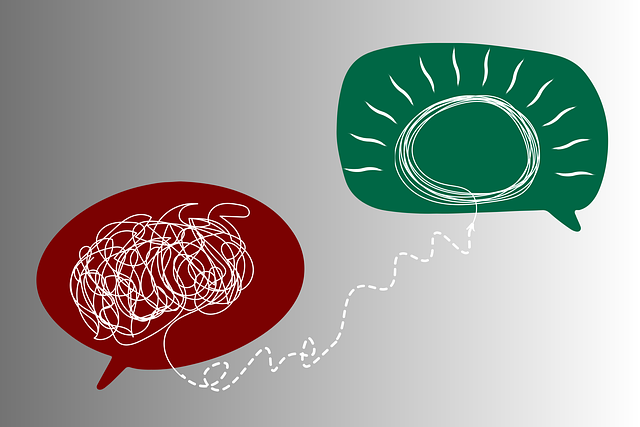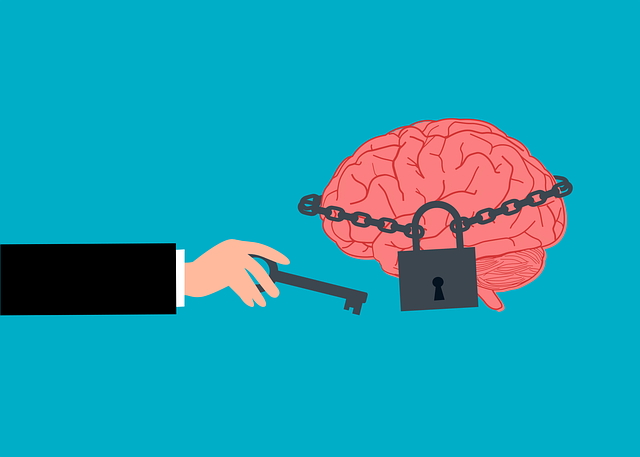Littleton Adjustment Disorder (LAD) therapy emphasizes coping skills as a core component for managing stress, anxiety, and trauma. Through self-reflection, individuals identify personal triggers linked to thoughts, emotions, and behaviors in stressful situations. Effective coping strategies, such as self-care routines, mental wellness coaching, and mindfulness practices, are tailored to manage stress, enhance resilience, and improve overall well-being. Mindfulness and relaxation techniques foster present-moment awareness, calmness, and emotional regulation, offering accessible skills for managing challenges. Building resilience through LAD therapy equips individuals with inner strength and effective stress reduction methods, fostering lasting healthy coping mechanisms that enhance mental wellness and quality of life.
Coping skills development is an essential aspect of therapy, empowering individuals to navigate life’s challenges with resilience. This article guides you through the process, from understanding coping skills and their significance in therapy to identifying personal triggers and stressors. We offer a comprehensive strategy guide, incorporating mindfulness and relaxation techniques, and explore long-term resilience building. Learn effective methods tailored to managing anxiety, stress, and even Littleton Adjustment Disorder Therapy. Discover how these skills can enhance your overall well-being and mental health.
- Understanding Coping Skills and Their Significance in Therapy
- Identifying Personal Triggers and Stressors
- Strategies for Effective Coping: A Comprehensive Guide
- Incorporating Mindfulness and Relaxation Techniques
- Building Resilience: Long-Term Coping Skills Development
Understanding Coping Skills and Their Significance in Therapy

Coping skills are a crucial component in therapy sessions aimed at addressing mental health concerns, including conditions like Littleton Adjustment Disorder. These skills empower individuals to navigate challenging situations and manage their emotions effectively. By learning and practicing healthy coping mechanisms, clients can improve their ability to deal with stress, anxiety, or traumatic experiences.
In the context of therapy, focusing on these skills promotes self-esteem improvement and fosters mental wellness. Mental wellness coaching programs often emphasize developing robust coping strategies as a key element in long-term recovery and overall well-being. This approach allows individuals to regain control over their lives, making them better equipped to handle various personal challenges and promoting positive mental health outcomes.
Identifying Personal Triggers and Stressors

Identifying personal triggers and stressors is a crucial step in developing coping skills. This process involves self-reflection and recognizing patterns in thoughts, emotions, and behaviors that lead to feelings of stress or distress. Through therapy, such as Littleton Adjustment Disorder Therapy, individuals can learn to recognize these triggers—whether they stem from specific situations, interactions with others, or internal mental processes.
Understanding one’s unique triggers is essential for effective coping strategies. For example, a person may find that certain stressors manifest as physical symptoms like headaches or insomnia, while others might experience heightened anxiety or irritability. Once identified, these triggers can be addressed through various means, including the development of self-care routines and mental wellness coaching programs. Mental Wellness Coaching Programs Development can provide guidance on implementing healthy habits and practices tailored to each individual’s needs, fostering better mental health and overall well-being. Additionally, Self-Care Routine Development for Better Mental Health and Mental Wellness Journaling Exercise Guidance can offer practical tools to manage stress and promote resilience.
Strategies for Effective Coping: A Comprehensive Guide

Developing effective coping strategies is a vital part of maintaining mental wellness and preventing burnout, especially for individuals navigating challenges like Adjustment Disorder. In Littleton Adjustment Disorder Therapy sessions, professionals often emphasize several key techniques to help clients manage stress and difficult emotions. One powerful approach involves identifying and challenging negative thought patterns. By recognizing distorted thinking, individuals can replace self-critical or pessimistic thoughts with more realistic and positive ones, fostering a healthier mindset.
Additionally, engaging in regular physical activity and practicing mindfulness are proven strategies for coping. Exercise releases endorphins, naturally enhancing mood and reducing anxiety. Mindfulness techniques, such as deep breathing exercises and meditation, allow individuals to stay grounded in the present moment, thus calming the mind and body. Public awareness campaigns focused on promoting mental wellness can play a significant role in encouraging people to adopt these healthy coping habits, ultimately contributing to a more resilient and supportive community.
Incorporating Mindfulness and Relaxation Techniques

Incorporating mindfulness and relaxation techniques is a potent strategy for individuals navigating Littleton Adjustment Disorder (LAD) therapy. These practices empower individuals to cultivate present-moment awareness, fostering a sense of calm and emotional regulation. Through regular practice, individuals can learn to observe their thoughts and emotions without judgment, reducing the intensity of stress and anxiety responses.
Mindfulness meditation and deep breathing exercises are particularly effective tools within this framework. They offer accessible and portable coping skills that individuals can employ in various settings, promoting self-care practices and long-term mental wellness. Many Stress Management Workshops Organization and Mental Wellness Coaching Programs Development have recognized the benefits of these techniques, integrating them into their programs to support holistic development for those dealing with LAD.
Building Resilience: Long-Term Coping Skills Development

Building resilience is a cornerstone of long-term coping skills development, offering individuals the ability to adapt and thrive in the face of challenges. Through Littleton Adjustment Disorder Therapy, clients learn to navigate life’s storms with greater ease. This process involves cultivating inner strength and mental health awareness, empowering them to manage stress reduction methods effectively. By fostering resilience, individuals gain a deeper understanding of their emotional responses and develop strategies to cope with trauma or adversity.
The journey towards resilience is about discovering one’s inherent capacity for growth. It encourages the development of healthy coping mechanisms that extend far beyond therapy sessions. With consistent practice, these skills become ingrained in daily life, enabling folks to approach challenges with a sense of equilibrium. Ultimately, this fosters mental well-being and enhances overall quality of life, even in the face of significant difficulties.
Coping skills development is an integral part of therapy, empowering individuals to navigate life’s challenges effectively. By understanding coping mechanisms and identifying personal triggers, one can foster resilience and improve overall well-being. The strategies outlined in this article, including mindfulness, relaxation techniques, and building long-term resilience, offer practical tools for managing stress. Incorporating these skills into daily routines can significantly enhance mental health, especially for those seeking treatment for adjustment disorders like Littleton Adjustment Disorder. Through dedicated practice, individuals can revolutionize their coping mechanisms, leading to a more balanced and fulfilling life.











